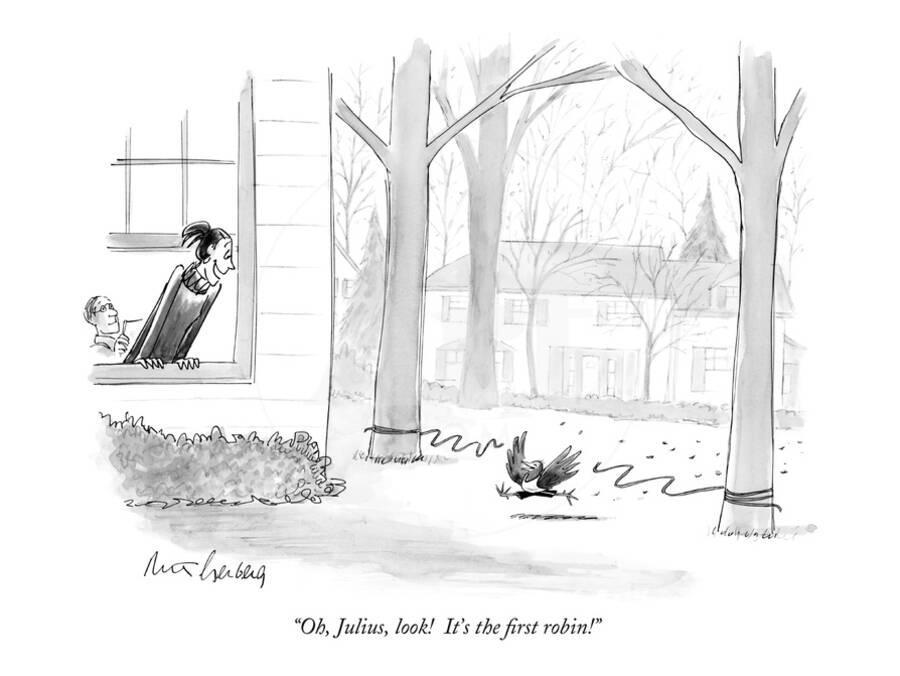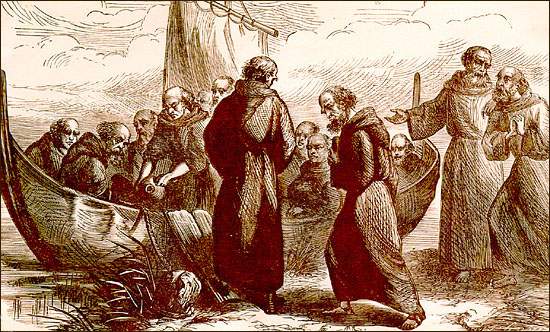Preached at All Saints, Collingwood, Anglican Diocese of Toronto, The Third Sunday of Lent, 12 March, 2023
Lectionary Readings: Exodus 17:17, Psalm 95, Romans 5: 1-11, John 4:5-42
… but those who drink of the water that I will give them will never be thirsty. The water that I will give will become in them a spring of water gushing up to eternal life.’ (Jn 4:14)
I once found myself on a mountain without any water. It was summer in the Rockies, and up there on the mountainside, the sun seemed close enough to touch as it burned in a brilliant blue sky. I had one of those camelbacks, a bladder of water, about two litres, that you wear on your back and suck through a tube. With the exertion, the summer heat, and the constant wind drying my face and mouth, I got really thirsty, and half way down the mountain my water was gone.
I will never forget those last few hours, stumbling down the mountain, my throat and tongue as dry as old rocks, my legs dragging, and my sight starting to blur at the edges. If I had found a nasty puddle or some stagnant pond, I would have fallen face down and drunk my fill, but fortunately I made it to the base of the mountain, where there was good water. But oh, I pray I am never that thirsty again!
Imagine now a traveller sitting beside a well under the Middle Eastern sun, at the hottest part of the day. He is thirsty, he knows there is water down there in the well, but he has no pail. Then a shape comes between him and the sun, a woman come to the well at noon, when you would least expect someone to come to draw water, and she is looking down at the traveller curiously, for he is out of place here, in her land. And so begins one of the longest and most wonderful conversations in all of scripture.
There are so many ways we could look at this rich passage. Many preachers focus on its inclusivity, noting how Jesus shows no interest in the traditional barriers of his day – man/woman, Jew/Samaritan – that would normally prevent such a conversation from ever starting.
Others focus on the Samaritan woman herself, noting her keen intelligence, her willingness to talk theology with Jesus, and her role as an evangelist when she goes off to tell her village about Jesus. Both approaches would note that John’s Jesus does not appear willing to go along with the traditional female stereotypes of his day.
While these are two ways of helping understand this conversation, I am interested (as my opening story suggests) in how John uses the ideas of water and thirst. Like Jesus talking to Nicodemus about being born again (John 3:1-17), as we heard in last week’s gospel, this is a conversation that works on several levels. Jesus and the Samaritan woman are talking about physical water and physical thirst (“Jesus said to her, ‘Give me a drink’” Jn 4.7) but it is also about something far more – spiritual thirst? Spiritual renewal? Baptism? Eternal life? Let’s try to sort out these images and see where John is going with them.
Like the conversation with Nicodemus, however, this conversation starts to go to unexpected places. When the woman marvels that a Jew would ask a Samaritan for a drink, Jesus replies that she would be better off asking him for water.
10Jesus answered her, ‘If you knew the gift of God, and who it is that is saying to you, “Give me a drink”, you would have asked him, and he would have given you living water.’
In his reply, Jesus hints at two things, the first being his identity as something far more than just a random, wandering Jew, and the second being that he, as the Messiah, might actually be the cure for her thirst, by offering her something better than the well water.
‘Living water’ in Jesus’ day meant water that moved, as opposed to the still water one finds in a well or cistern. The advantage of moving water, of course, is that it is fresh and not stagnant. My first parish was in the country, and there was an underground spring near the church that had been bubbling away since at least pioneer days. There was always a tin cup beside the spring, an invitation to the passerby to stop and drink, and on a summer’s day the water was clear, cold, and delicious. This spring and cup, beside a church, seemed like a perfect metaphor for what church should be, a place of refreshment and life for the weary and thirsty.
We can imagine the Samaritan woman now, looking sceptically at this stranger. “Seriously, random thirsty Jewish guy? You’re offering me water now, and living water? Where are you hiding that, huh?” Jesus’ reply takes the conversation further from the literal to the symbolic.
Once again the conversation moves a step further away from the literal to the symbolic.
13Jesus said to her, ‘Everyone who drinks of this water will be thirsty again, 14but those who drink of the water that I will give them will never be thirsty. The water that I will give will become in them a spring of water gushing up to eternal life.’
This answer leads the Samaritan woman into a series of questions and a dawning realization that this stranger might me be more than he says he is. As she tells her neighbours, he just might be even be the Messiah (Jn 4.29).
For us, as followers of Jesus, knowing who he is, our questions might be different, in that we might ask ourselves, ‘what exactly is this water that Jesus speaks of? Is it a symbol of something else? How are we supposed to understand it?’ Or, perhaps, our question is exactly the same as that of the Samaritan woman: ‘Ooooh, that water sounds good. Where can I get some?’
I don’t actually think we have to decide exactly what the water is. I think what’s important, as other scholars have noted, is that the water is a gift from Jesus, it belongs to him and he is willing to give it to us. It’s also important for us to note that, whatever the gift is that Jesus is offering us, it has something to do with eternal life. We also note that this gift of water of eternal life is better than anything else we might have or want.
By this time in the conversation, it’s fascinating to note that the actual, physical well has ceased to matter. No one is interested in it anymore. In fact, the Samaritan woman leaves her water jar at the well because it’s now more important to go tell her neighbours about Jesus (Jn 4.29). Instead, she has chosen what Jesus has to offer, even if she doesn’t quite understand it, and I wonder if the same is true of us.
In his commentary on this passage, the Anglican theologian and scholar N.T. Wright simply notes that the opposite of living water is stagnant water. Stagnant water can have mud and crud and critters floating in it. On my way down that mountainside, as I said earlier, I might have been content to fall down beside a puddle of stagnant water and drink from it, but it would have been only from desperation.
Wright is suggesting that far too often people settle for stagnant water because that’s all we get. Most people today live in a desert of lies, half truths, cynicism and despair, We as a society take temporary fixes, compromises, half truths, and sometimes we even fall into destructive substitutes for our true needs. Our souls cry out for something true, something life giving. People are thirsty for love and acceptance, and instead numb their pain with stagnant addictions and an empty, hollow craving that comes back all too soon.
This is the appeal of Jesus, because he offers us living water, he can fill our souls and lives in ways that the world can’t.
Time permits me from talking about the conclusion of this passage and Jesus famous remark about how 'the fields are ripe for harvesting” (4.35), which people (rightly, I think) take to be a reference to evangelism. So let me close be making the following suggestions.
First, how has Jesus quenched your thirst? Most of us, perhaps not all, but most of us, are here because at some point in our life’s journey our souls got really thirsty and we wanted the living water that Jesus can offer. Can each of us, in our own words, in our own way, find a way to put into words what that thirst, what that spiritual need, was for us? What made you decide that you needed what Jesus was offering?
Just think that question through so that you can find some way of explaining it, in the event that you are in a conversation where you can naturally speak about why your faith makes a difference in your life. We Anglicans don't do evangelism easily, but I think we all have opportunities with friends, family, and acquaintances, to speak about why our faith is real and life-giving to us, and our words may well fall on thirsty ears.
Next, ask yourself what it would be like for All Saints to be known as a place of living water, where people who had been desperately thirsty had found what they needed to stay alive? We already have a reputation as a church that feeds people. How can we become known as a place of living water, where people had said yes to the gift of eternal life that Jesus offers, and wanted to share that love, that forgiveness, renewal, with others.
Here’s one simple idea. Soon the snow and cold will give way to warm temperatures. People on the street are going to be increasingly thirsty. Clean safe water is going to become essential. How can All Saints meet that need? We can’t dig a well at the foot of Elgin Street, and we can’t park a water truck there. But what if we were to invest in a large stock of environmentally friendly, safe and refillable water bottles? What if we were to make sure that our local library and other places had a stock of these water bottles to place by their drinking fountains and give out to anyone who wants them?
That would be a small and simple offer of kindness. It wouldn’t be a permanent fix for thirst. But it would be an act of faith, a gesture pointing to Jesus, the one who offers us all living water. It would be in keeping with the faith of the Samaritan woman, who wanted to share Jesus with her neighbours. May we do the same. Amen.



 \\
\\
